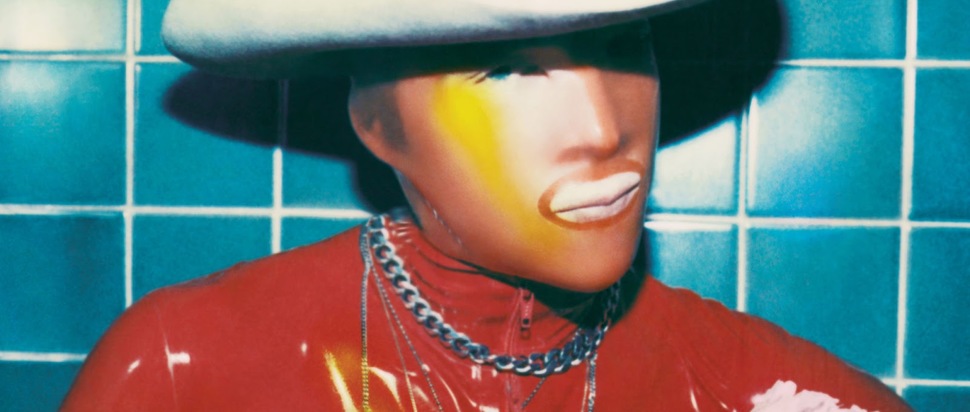Cage the Elephant – Social Cues
Cage the Elephant’s Social Cues shows that the band can still reach for new sounds while continuing to thump out radio-friendly hits
Cage the Elephant’s Social Cues shows that the band can still reach for new sounds while continuing to thump out radio-friendly hits set to the same kick drum Jared Champion’s been hitting for more than ten years. But it’s evident now more than ever that something’s gone missing along the way – and it’s not just former lead guitarist Lincoln Parish.
Whether or not you like Dan Auerbach’s unmistakable production on 2015's Tell Me I'm Pretty, it’s clear that out from under The Black Keys’ co-founder’s hand Cage the Elephant have finally achieved a sound halfway between Manchester and the Coachella Valley, the one they’ve been seeking since their debut. After their 2017 live album Unpeeled dipped into the possibilities of a string section, the prominent strings, keys and electronic effects on Social Cues are not surprising. And on this focused studio effort, their effect more consistently comes off – notably in the opening of the symphonic stoner plaint Love's the Only Way and in the album’s pained closer Goodbye.
On these tracks lead singer Matt Shultz sets out to explore aging, wealth, fame, isolation, and the limits of power and achievements. It’s all summed up early on in the album’s eponymous second track, a song relatable for anyone who’s been uncomfortable with what others might consider luck, privilege, or success: 'I’ll be in the back room / Tell me when it’s over / Don’t know if I can play this part much longer', Shultz sings. The final seconds of the song echo the refrain, without any musical accompaniment: 'People always said / Man, at least you’re on the radio'. On Love's the Only Way, Shultz is at his most profound, revisiting the same theme from a greater distance – 'It’s not the wave that moves the sea / But the sea that moves the wave', he muses.
There are also fun experiments like House of Glass, which sounds like a Cage cover of a forgotten Arctic Monkeys B-side, with Shultz attempting a German accent. With Beck, the band pull off a bleached neon reggae in Night Running. You might catch yourself enjoying this one, but there isn’t much substance here.
More interesting is that final track, Goodbye. It won’t earn much airplay, but it is a testament to the group’s maturity and a window into the circumstances of the album’s composition which involved “a fair amount of self-medication and intense isolation,” as Matt Shultz recently told Rolling Stone. Recorded in one take while lying on the studio floor, Shultz wrote the song for his wife at the end of their relationship.
Songs like Broken Boy, Social Cues, Skin and Bones, and Ready to Let Go might at first seem strong, and will likely number among the album’s certain handful of hits. On even casual analysis they do have all the predictable elements that sustained the group through their last four albums. But Ready to Let Go, a slinkily insistent singalong, inadvertently highlights what’s missing here.
'Don’t you worry baby / No sense trying to change it / I’ma strike these matches / Never had control', Shultz sings, 'I’m ready to let go'. The themes and images are familiar – loss of control, arson, and so forth. It all recalls the hit that made them: In One Ear. You remember the 'anti-social anarchist', driven by an imagined auditor’s 'tyranny', only 'add[ing] the fire to our flames.'
Are they really 'ready to let go'? Or are they only going through the motions?
With this in mind, some of the songs on a second or third listen descend into silliness. 'I was promised the cold kiss of a vampire / I was promised the keys to an empire / Any girlfriend of yours is a girlfriend of mine', Shultz sings on Broken Boy. 'Broken boy, broken boy / How does it feel, how does it feel?' he may be asking himself, and only half-hoping for an answer.
We don’t really want Cage the Elephant to remain forever adolescent, fighting with fans and fooling around with flares in a junkyard. We don’t need to hear Shultz scream. And the band’s continuing experimentation with studio personnel, producers, influences, and ranges of emotion should be applauded. But a little more grit in the riffs would be nice. Then again, as we’ve seen before, it might be that all this new material is best heard live, with an audience and on the outskirts of the mainstream – maybe even in somebody’s living room.
